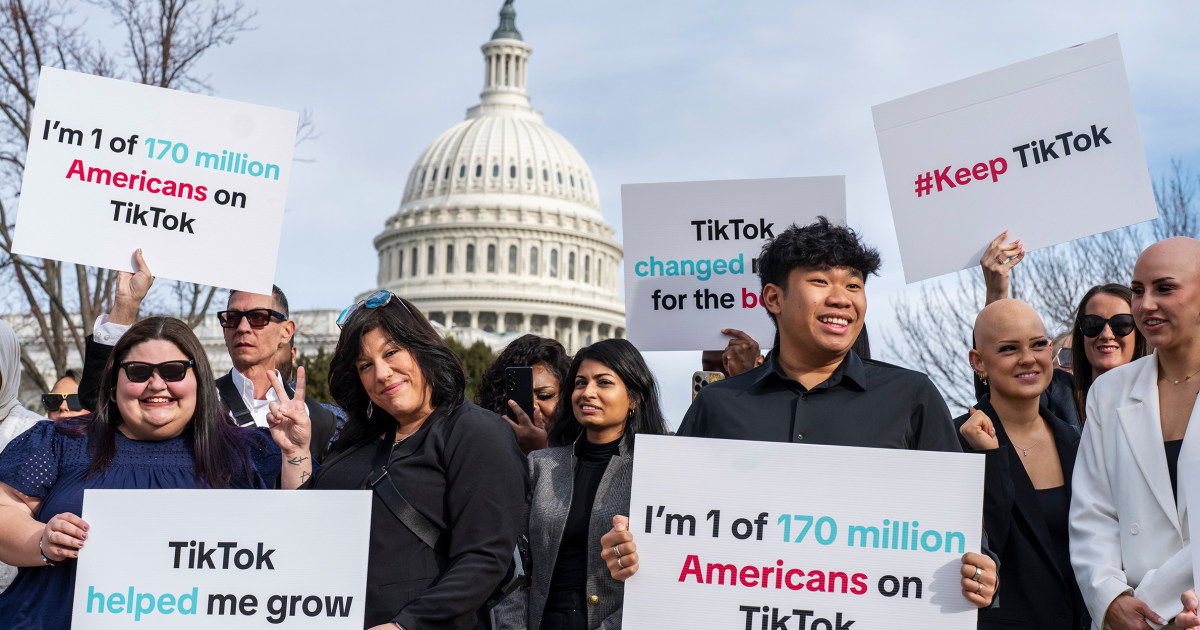In similar remarks, Chinese Commerce Ministry spokesperson He Yadong addressed reporters, emphasizing the importance of the United States genuinely respecting market economy principles and fair competition. He urged the U.S. to cease what he termed as unjust suppression of foreign enterprises, adding that China would take all necessary measures to protect its interests.
Prior to the legislative vote, Beijing cautioned that any ban would ultimately have negative repercussions on the United States itself.
The House passed the legislation on Wednesday with a vote of 325 to 65, with one member voting present. The bill will now proceed to the Senate, where it is expected to undergo further scrutiny.
President Joe Biden, whose re-election campaign recently joined TikTok, has indicated his intention to sign the bill into law should it pass both chambers of Congress.
TikTok has vigorously campaigned against the legislation, asserting that it was hastily pushed through the House. The company has voiced concerns about the potential economic ramifications for small business owners reliant on the platform and has urged its 170 million U.S. users to voice their opposition.
TikTok CEO Shou Zi Chew warned that the ban could jeopardize hundreds of thousands of American jobs, granting more power to a select few social media companies. He encouraged users to make their voices heard through a video posted on TikTok.

China Criticizes U.S. ‘Bullying’ Over TikTok Ban Bill Passed by House (Credits: The Times Of Israel)
During congressional testimony last year, Chew emphasized that ByteDance, TikTok’s parent company, was not an agent of China. He stated that TikTok had never shared or received requests to share U.S. user data with the Chinese government.
Chew highlighted that information about American users had been transferred to U.S. servers operated by Oracle, a Texas-based company. Under this new arrangement, he claimed, there was no way for the Chinese government to access or compel access to this data.
Despite these assurances, lawmakers who supported the legislation expressed concerns that China could potentially access information about Americans through TikTok or manipulate content to influence their perspectives, especially during election periods.
The bill establishes a procedure for the U.S. president to designate a social media app controlled by a foreign adversary as a national security threat and ban it from U.S. app stores unless it severs ties with that country within six months.
Some House members who opposed the legislation cited concerns regarding freedom of speech, arguing against the selective blocking of social media platforms akin to practices in China.
Responding to queries on Thursday, Foreign Affairs Ministry spokesperson Wang underscored the differences between the U.S. approach to TikTok and China’s policy on social media, which involves heavy censorship and bans on platforms like Google, Facebook, Instagram, YouTube, and others.
Wang emphasized China’s openness to various foreign platforms and services entering its market as long as they comply with Chinese laws and regulations.
The TikTok issue is expected to have implications in the upcoming presidential election, particularly among young TikTok users, according to an NBC News poll conducted in January.
Former President Donald Trump, who secured the Republican nomination this week, initially supported the ban but has recently expressed opposition to it.
The legislation in the U.S. has also sparked discussions on whether other countries will follow suit. Australian Prime Minister Anthony Albanese stated that while TikTok is not permitted on government phones, there are no plans to ban its usage by the public. He emphasized the need to balance national security concerns with the public’s communication preferences during a radio interview.
























